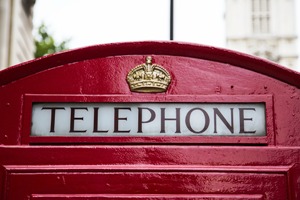Although it’s famous for red London buses, Big Ben and the Royal Family, there is much more to England. And planning your trip to the UK is actually fairly easy! There are few visa requirements, and English is widely spoken across the world. However, there are some things to keep in mind.
Here’s a list of handy hints and tips for your your visit:
Planning Your Trip: Before You Go
Check visa requirements. Entry to the UK is much less stringent than other countries. Depending on where you’re coming from, you may need a visa to enter. If you’re a citizen of the USA, Canada, Australia, or an EEA country, you won’t need a visa. Otherwise, it’s best to check. If you do need a visa, make sure you get the right type. No one wants to be turned away at border control!
Planning Your Trip: Getting Here
 Heathrow is the UK’s largest and busiest airport, handling hundreds of flights a day from all round the globe. Other London airports (Gatwick, Luton, Stansted and City) are similarly busy.
Heathrow is the UK’s largest and busiest airport, handling hundreds of flights a day from all round the globe. Other London airports (Gatwick, Luton, Stansted and City) are similarly busy.
Other major international airports in England include Birmingham, Manchester, Liverpool, and Bristol. These can offer better access to wherever you’re staying, so make sure to do your homework!
Planning Your Trip: Getting Around
Your first thought might be to hire a car, but this is not necessarily the most cost-effective option. Petrol in the UK is not cheap in general, and if you’re visiting a large city, parking can be a problem. There are plenty of other options available, though. If you’re in London, there’s the Tube. For around £12.00, you can purchase a one-day travelcard for unlimited travel in zones 1-6 for one day. Around £60.00 will buy you travel for a week.
If you’re going elsewhere, the rail network in England is pretty good, with regular trains running between most major cities.
Planning Your Trip: Where to Stay
 The average cost of a hotel room in the UK is £82.00. Some are much more, and others much less. If you want a decent hotel, however, you should expect to pay around this amount or more, making this quite an expensive option.
The average cost of a hotel room in the UK is £82.00. Some are much more, and others much less. If you want a decent hotel, however, you should expect to pay around this amount or more, making this quite an expensive option.
However, there are other options. Youth hostels are found in most towns and cities around England, and they are (mostly) comfortable, clean, and cheap. If you’re just looking for somewhere to lay your head, this could be perfect.
For those who want something a bit different, try camping, either in a caravan or tent, or maybe hire a canal boat and travel Britain’s extensive waterways.
If you’re bringing electrical appliances with you (phone chargers, hair styling tools etc), you will also need to bring an electrical adapter. Power sockets and voltage in the UK are different to other countries. Make sure you buy the right adapter, otherwise it could be dangerous.
Planning Your Trip: Saving Money
Whilst you will have to pay for travel and accommodation, once you’re here, there are plenty of fun things that you can do in England for free. All of Britain’s national museums are free entry, and there is plenty of beautiful scenery to enjoy all around the country.
For plenty of ideas for free/cheap and fun things to do, have a look at Enjoy England.
Planning Your Trip: Emergencies
 In an emergency, you should dial 999. This will put you through to the police, fire and ambulance services.
In an emergency, you should dial 999. This will put you through to the police, fire and ambulance services.
If you need emergency medical treatment, you can walk into a GP’s surgery, the accident and emergency department of the nearest hospital, or a walk-in centre. Treatment in an emergency will be free, but if you require hospital admission or further treatment, you will most likely have to pay, depending on your insurance.
Planning Your Trip: UK Public Holidays
The UK has 8 bank holidays that occur every year, along with others that are location specific or for special events. If you’re visiting around one of these holidays, you may find that certain shops and attractions are closed, and that public transport is running a reduced service, so it’s best to check in advance.
Planning Your Trip: Whatever the Weather…
 English weather is notoriously changeable. Whether it’s snow in April, blazing sunshine in October, or torrential downpours in August, we get them all (sometimes within the same day!). Consequently, this makes it very difficult to know what to pack.
English weather is notoriously changeable. Whether it’s snow in April, blazing sunshine in October, or torrential downpours in August, we get them all (sometimes within the same day!). Consequently, this makes it very difficult to know what to pack.
The best advice would be to err on the side of caution. For an outdoorsy holiday, bring warm clothes, sturdy shoes and waterproofs. If you’re coming for a city break, layering is key. In winter, thick coats, hats and scarves and jumpers are the way to go. When the weather gets warmer, swap these for thinner jackets and lighter layers.
Thinking of visiting England regularly? Why not save money in the long run and consider purchasing timeshare? Various resorts around the country offer a wide range of luxury options. Speak to one of our expert consultants today!



